Government begin consultation on next Southeastern franchise – tube style trains coming?
So then, after Chris Grayling blocked the Department for Transport devolving Southeastern services to TfL let’s see what he has in store as consultation on the next franchise begins.
And crucially, as I’ll cover later, I think they’ve possibly badly under-estimated planned house building which could skew the entire basis of growth and service provision.
Service cuts?
Firstly, it seems they do want to cut connections on the Woolwich line from Charlton to Blackheath, Lewisham, Waterloo East, Charing Cross and also the easy change for Victoria at Lewisham.
The Bexleyheath line would possibly also only see trains to Cannon Street and not Charing Cross.
Cutting trains on the Woolwich line to Charing Cross relates back to the Thameslink consultation. Thameslink plans would see two trains per hour on the Woolwich line to Luton through central London replacing those to Charing Cross.
The consultation also foresaw cuts to off-peak Southeastern services from six at present to four an hour, even at places like Erith which is seeing 2,000 homes under construction in the vicinity and wouldn’t see Thameslink trains stopping.
Higher fares?
Cutting trains to Charing Cross would perhaps be tolerable and make sense for wider service reliability if Southeastern passengers could change from trains to tube and DLR and not pay £1.50 extra which they currently do whilst other commuters in London do not.
For example, cross the river and c2c passengers coming from Essex don’t pay this. Passengers in the west using Great Western to Paddington and changing to the tube don’t pay extra. But Southeastern passengers must pay £1.50 extra on every trip.
It’s unfair to cut trains unless Southeastern passengers pay the same as most of London when changing, as TfL were proposing before their takeover was blocked, and not have a south east London penalty slapped on top.
Another example of fare disparity is non zone 1 trips. Cross the river and you’ll pay £1.70 in the peak to travel from zone 6 to zone 2. Do it with Southeastern and its £4.20. You can see the extra Southeastern passengers pay by using this page.
The consultation makes the usual noise about Crossrail and Thameslink solving most ills in terms of capacity. Thameslink actually cuts the number of trains Cannon Street will be able to handle in peak times comes nowhere near much of SE London’s metro services.
It brings no net increase to the Greenwich line in terms of frequencies if other services are cut and possibly even no capacity upgrade if 10 carriage SE trains become 8 carriage Thameslink.
Crossrail will of course help the Woolwich line but for those elsewhere such as Hayes, Bexleyheath, and Sidcup lines it does little. Any speed advantage in reaching the City from Crossrail over Southeastern is negated, for those in say Bexleyheath, in the need to reach Abbey Wood by bus. What does it do for capacity at Kidbrooke, Eltham etc?
12 carriage services are needed far more widely. And that means more Southeastern metro trains. That’s the crux of it.
Here’s a survey you can fill out on the next franchise.
Housing
Even with Crossrail, the Greenwich line will be busy again by the early 2020s. Just look at these current housing numbers from KFH (the second column showing total properties):
Greenwich borough is ranked number two out of 33 London authorities under current schemes and the borough has the second highest target for new homes up to 2030 under the London Plan.
The document seems to badly underestimate planned housing numbers. It claims 36,000 new homes coming in the SE Metro area in London boroughs (thus excluding Dartford and Medway).
That’s just too low and seems a dated figure given recent changes. There’s 20,000 homes at least in Greenwich. 15,700 under Knight Dragon plans with many more at Enderby Wharf, Morden Wharf, River Gardens, Precision and those such as Greenwich Square near Maze Hill. That has 400 alone, and I covered it last week.
Vast numbers at Lewisham too as anyone passing would’ve seen.
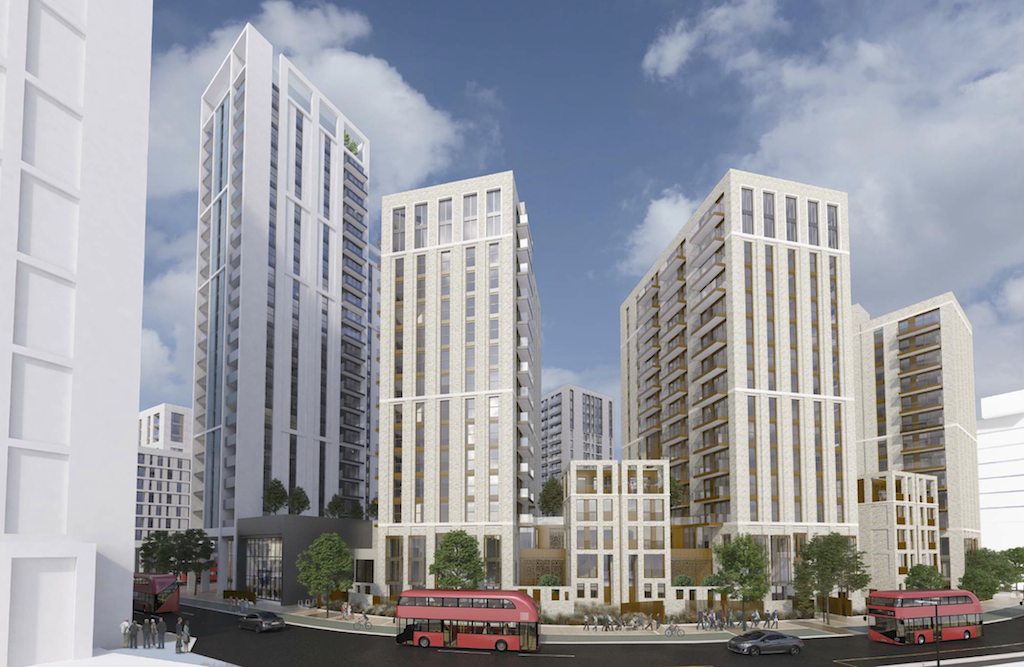
Deptford could see 5-10,000. Convoys Wharf alone is 3,500 and preliminary work begun last year. Large numbers also being built at the Creek as I covered two days ago when I took a walk round looking at the towers going up. The Timberyard development will see 1,132 homes. There’s also former school sites to be built on at Tidemill and the former Deptford Green site.
Charlton will see 8,000 at least with the riverside masterplan for 7,500 plus sites at Victoria Way and elsewhere.
Woolwich could see at least 10,000. A vast number of homes coming here. Just yesterday I covered new plans for another 800 more homes by Meyer Homes. There’s scope for many more.
Abbey Wood and Thamesmead’s housing zones total 3,000 homes and other developments will expand on that such as the proposed tower by Abbey Wood station. Again, much vacant land nearby.

Erith is seeing 2,000 homes planned now and more in future.

Kidbrooke with 3,000+. Just last week TfL announced 400 homes there in addition to Kidbrooke Village, whose tower is now rising beside Kidbrooke station. It goes on and on.

Eltham also sees plans to build behind the High Street on car park sites.
You can double that 36,000 figure. The Department for Transport seem to be going with a very conservative number.
More trains?
There’s some mention of more stock but it seems vague to me, and also a few mentions of turning existing trains into tube like stock. I don’t have a problem with converting the rows of three seats into two throughout to make more space to stand but not keen on full tube like stock.
Combined working with Network Rail
This is Grayling’s big idea and the main reason he gave to block TfL (‘cos they can’t work with NR right on SE routes, like they do in many places?).
It will help, if it doesn’t fall apart as a previous scheme between South West Trains and Network Rail did after 18 months.
Passenger numbers
The consultation suggests that passenger numbers fell in 2015/16 from 2014/15. That’s not what GoVia’s own shareholder reports have said.
And if they are basing that as a guide for future demand it’d be unwise. Stations such as Abbey Wood have been closed pretty much every weekend for a couple of years due to Crossrail work.
Compensation
This is one of the good things with compensation attainable after 15 minutes delay instead of 30 minutes. This does though just bring it down to the same level as neighbouring Thameslink and Southern, and above c2c over the river which starts at just two minutes (and they pay less as noted above as they use TfL’s fare levels).
Capacity
They talk about capacity limits with trains running into London terminals being at capacity in the peaks. Very true. Cannon Street even sees a cut in the number of trains it can accommodate after Thameslink opens compared to 2014 as a connecting link to Charing Cross is cut. Trains were moved there to create more platform space for other trains to pull into. No longer possible.
So what do other networks do about this when capacity is reached on conventional lines? They use automated systems to increase frequencies. Much of the tube upgrades in recent years was to enable this, Thameslink will do it in the central section and TfL are now looking at it for London Overground.
No mention at all of using this with Southeastern.
Staffing
It mentions that passengers desire more staff at night but then does little to suggest it. TfL wanted to staff most stations from first to last train to improve safety and staff barriers to increase revenue before Grayling blocked it.
There’s also mention that passengers see themselves as being part of a “wider London transport system” with interchanges between DLR and tubes. But again, little mention of stopping those rip-off additional fees that Southeastern passengers have to pay to switch modes of transport that London Overground, Great Western, c2c etc. rail users avoid as they are on TfL fare schemes.
I’m extremely cynical about this. The Department for Transport have done very little for this franchise area, and particularly London suburban and metro services, going back over 10 years.
Now add Chris Grayling to the mix as Transport Minister and will we see those things that TfL provide on lines they took over? Whitehall have shown time and again they do not understand local need that authorities such as the Greater London Authority, the Mayor and TfL do.
Then add in a Treasury and Chancellors that continue to hit transport with huge cuts despite a rapid population increase in London and vast numbers of new builds (with Greenwich borough at the forefront of both) and it’ll take a big fight to get any sort of improvement.
Once again, give your comments at this survey here.
Running a site alone takes time and a fair bit of money. Adverts are far from enough to cover it and my living costs as a private renter.
You can support me including via Paypal here Another option is via Patreon by clicking here You can also buy me a beer/coffee at Ko-fi here There's also a Facebook page for the site here Many thanks


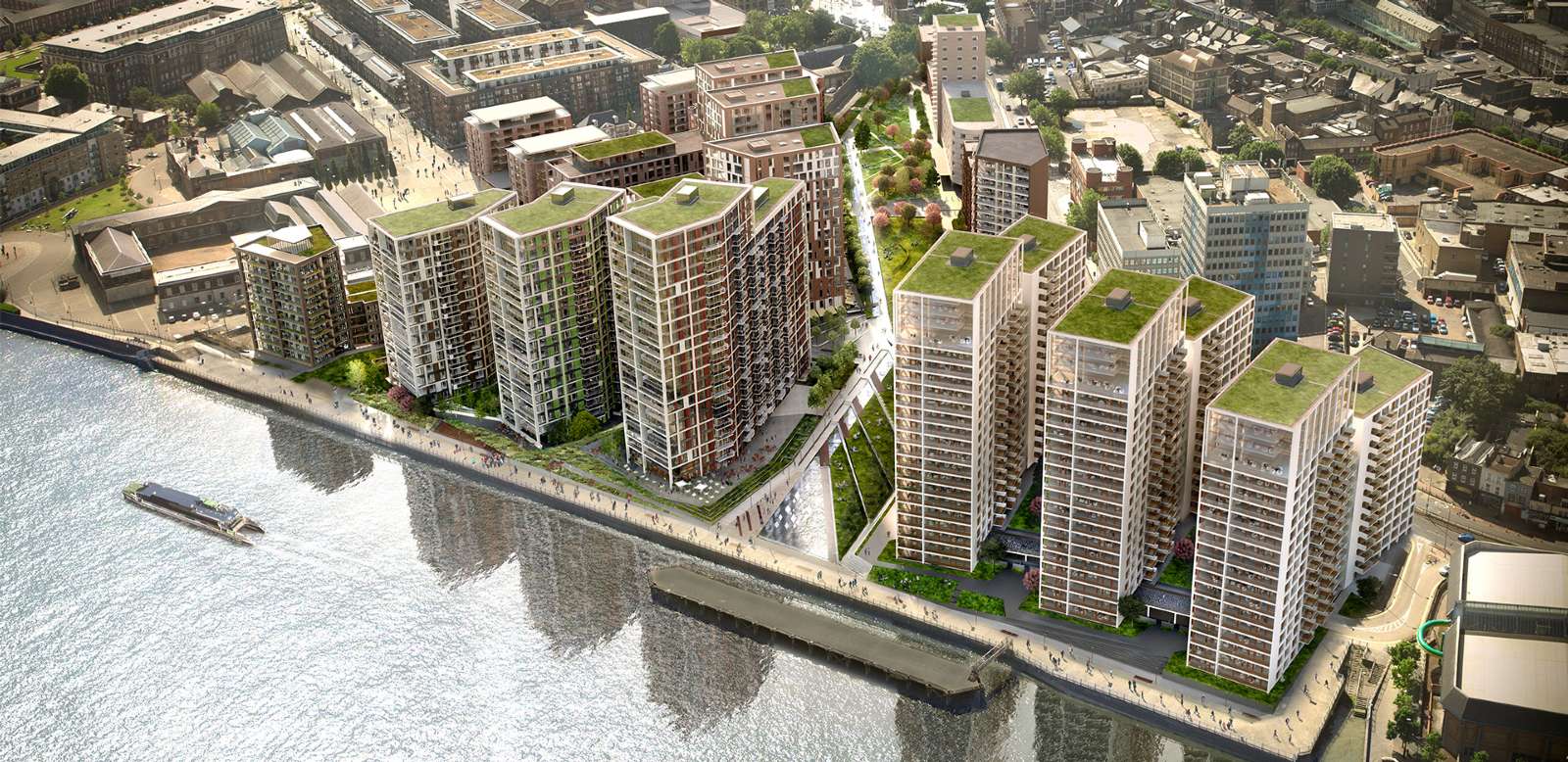
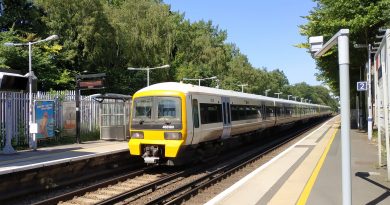
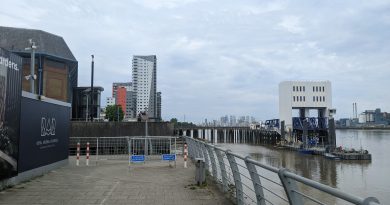

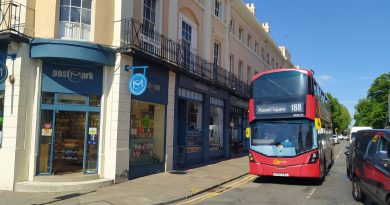
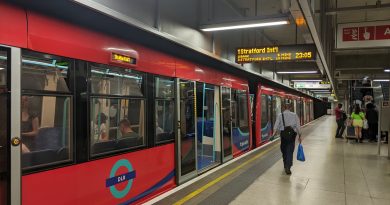
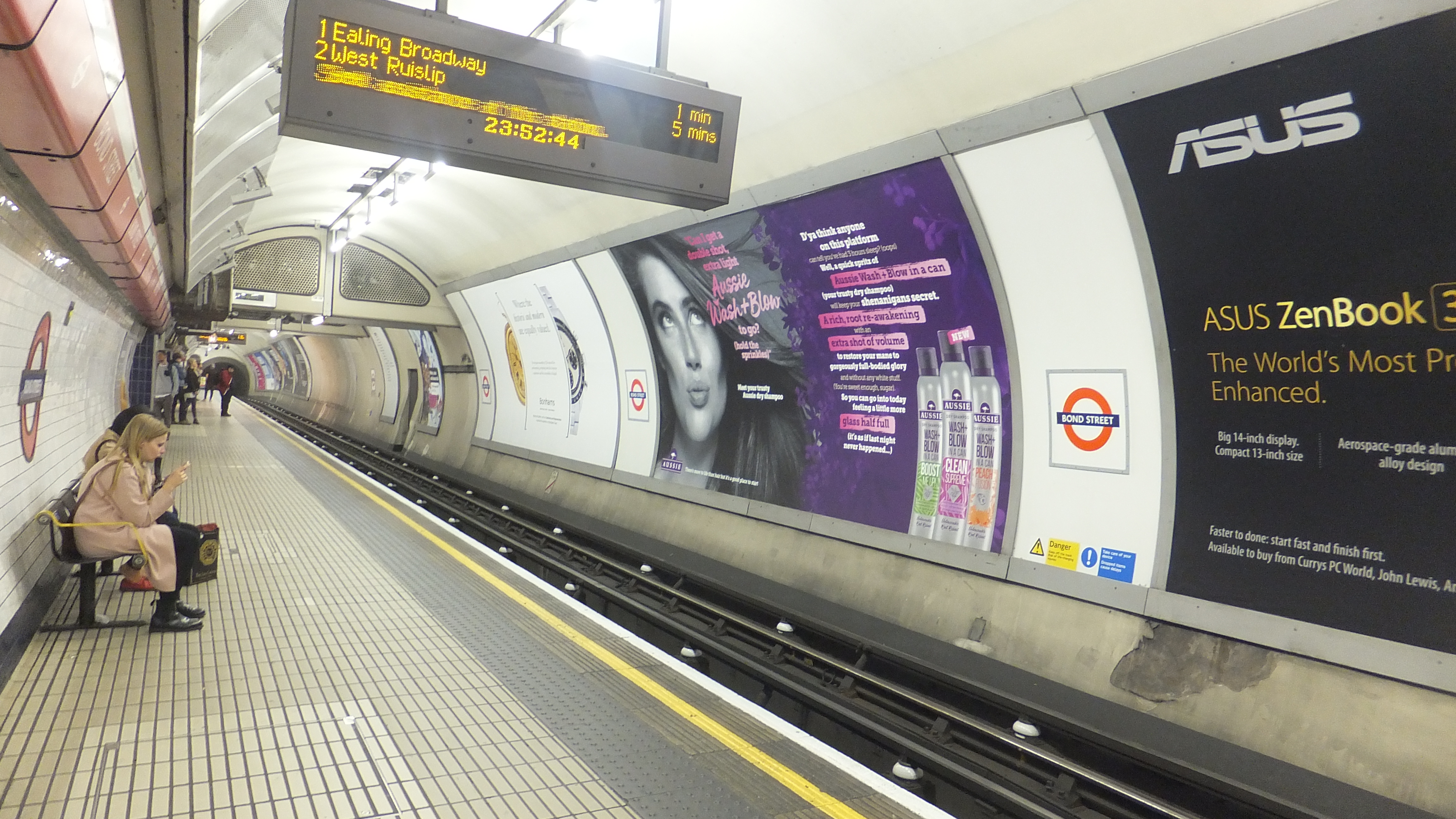
The consultation documents mention the Kent Area Route Study ( http://www.networkrailmediacentre.co.uk/news/more-housing-and-more-train-passengers-network-rail-sets-out-30-year-plan-to-cater-for-growth-in-south-east-london-and-kent# ) which looks to be a rather long read.
Just reached section 3.8 where I think it’s suggesting there’s no need for extra carriages on the Woolwich route, due to passengers interchanging to Crossrail at Abbey Wood!
Cheers. Im going to have a look through and see what stands out. Its true that post 2018 relief to congestion should focus on other Lines such as through Kidbrooke. But after 5 years or so will 10 carriages be enough? If current housing plans transpire then possibly not. It does not bode well that the DfT’s planned housing numbers are so outdated
Well I never! I thought I always paid more for trips on Southeastern with my oyster and checking the oyster fare finder shows it’s true.
It’s often twice the price to take a trip in south-east London than equivalent trips in east and west London. A bit of a scandal. Surely the press should’ve highlighted this?
That really needs to be sorted by the next franchise. I’ll get on to my MP who can hopefully highlight this
It is well worth looking at the NR Kent route study docs – especially the technical appendix. NR seem to have done a huge amount of work around what is needed to raise capacity. There is also a decent section on “TfL Metroisation” which points up what you won’t be getting. NR’s basic premise is to get train lengths up to 12 cars into London Bridge and 8 cars into Victoria. That seems a decent enough first step but obviously not enough long term.
DfT seems to have “nicked” a few of the easier to deliver TfL concepts but nothing that would cost considerable sums of money. There is a reference to “reducing costs” in the SE consultation document which I expect is the underlying concern for DfT despite all the fine words about “co-operation”, more capacity etc. There is a weasely reference to some of Grayling’s more silly ideas about “alternative investment models”. I will be surprised if anything of any great substance happens on the suburban services other than some extra trains. I expect the major headline for the new franchise will be extra High Speed trains being ordered as that’s where so much of the emphasis is. Also keeps Hitachi busy in Newton Aycliffe which is good politics for the DfT.
There’s very few days that go by when I don’t think about Grayling blocking the TFL handover.
In 12 months time he’ll have moved on to a different portfolio or been fired and will never think about – let alone – use – the service ever again. But we’ll all still be living with his decisions every day. Sadface.
I hope they preserve some form of Woolwich>Lewisham>Charing X service. Who really wants to go to Cannon Street on the weekends?!
Let’s make sure we all complete the survey (thanks for posting the link)
Or rather, scrap this ill-advised idea completely. If I was a commuter going to Charing Cross from, say, Erith, I’d have to trade my comfortable and (most likely) seated 35-minute journey for a piecemeal one that changes at Lewisham and which will already be packed full – no seat for me!
In their defence, I think what they would say is that those passengers would catch a Cannon St bound train and then change at London Bridge (Cannon St stations will be stopping there from 2018). They may lose their seat at London Bridge, but that’s only a 10 minute journey to Waterloo E or Charing X. I’m not saying I agree with the proposal though as having a through train to the West End is very convenient, especially if it means avoiding having to walk through the subway at London Bridge to change platforms.
That’s true and will be their line. Doesn’t explain cuts to Victoria on the Bexleyheath line and Woolwich loosing trains to Lewisham to then catch it. Both lines will have to take the District from Cannon Street and incur £1.50 extra on a pay as you go single trip that isn’t levied on those north of the Thames when changing to the tube.
Not to mention capacity issues on the District/Circle and Jubilee lines. An experiment: if you’re a commuter to Charing Cross, Victoria or Cannon Street, try getting a train to one of the other terminals one morning, and use the Tube to get to your regular station. It’s not remotely fun.
In terms of automation to increase frequency, it is coming. The Traffic Management System (TMS) will start to be rolled out from 2018 which is what will
allow 28 trains per hour through the Thameslink “core” and will be rolled out wider of the following years
We do need to keep our Waterloo/Charing Cross trains from Lewisham PLEASE!!
Pingback: Plans to send all trains to Cannon Street abandoned – a trick all along? – fromthemurkydepths
Pingback: Dead cat on the line: How the Cannon Street train ‘plan’ distracts from the real issue of who runs our rail | 853